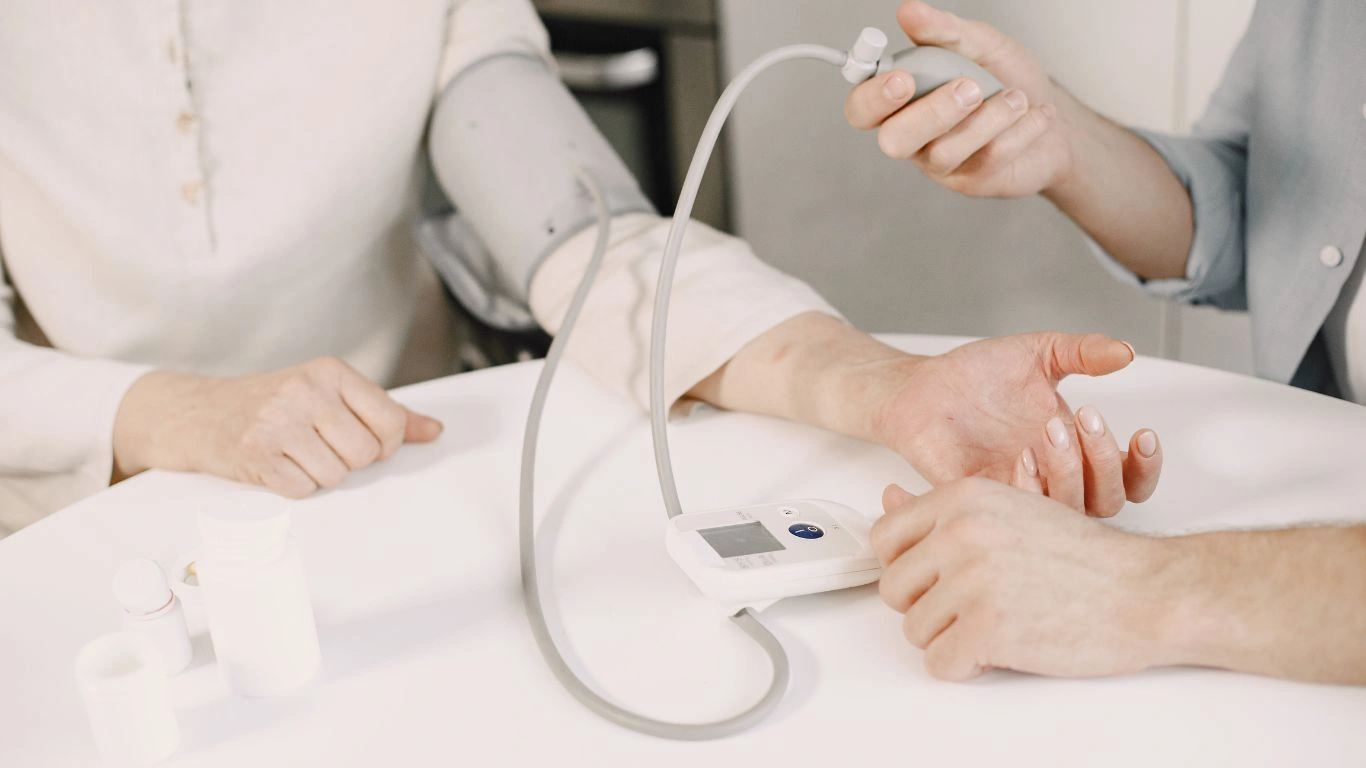Is Coconut Water Good for Hypertension? Powerful Benefits Revealed
If you’ve ever sipped on coconut water after a workout and felt refreshed, you’re not alone. Lately, a lot of my patients have been asking me: Is coconut water good for hypertension? As an internal medicine physician who spends a good chunk of her day managing high blood pressure cases, I love when folks show genuine curiosity about what they’re putting in their bodies. So let’s talk about coconut water — its health perks, its potassium-packed profile, and how it fits into hypertension management — all with a real-world, practical lens. Spoiler: It’s not a miracle drink, but it’s got potential.
Understanding Hypertension: The Basics Matter

Before we dive into the coconut craze, let’s lay some quick groundwork. High blood pressure — or hypertension — is when the force of blood against artery walls stays too high over time. Left unchecked, it can damage organs, increase stroke risk, and strain your heart like it’s lifting weights all day long.
Here’s a simplified breakdown I often share with patients:
- Systolic pressure: the top number — pressure during a heartbeat
- Diastolic pressure: the bottom number — pressure between heartbeats
If your BP’s creeping past 130/80 mmHg consistently, that’s the yellow flag zone. Most cases I see in clinic are lifestyle-related. Diet, stress, and lack of movement are major culprits — but thankfully, that also means we can do something about it.
So, Is Coconut Water Good for Hypertension?

Here’s where it gets interesting. Coconut water is nature’s sports drink. It’s rich in potassium, and that’s one of the biggest reasons it shows up in conversations about blood pressure. Potassium helps your body get rid of excess sodium, which — as we all know — plays a not-so-great role in raising blood pressure.
Now, I’ll be honest — I’ve recommended coconut water in moderation for some of my patients who wanted a natural alternative to sugary sports drinks. It’s refreshing, lightly sweet, and doesn’t spike your blood sugar like sodas or processed juices.
What Makes Coconut Water Stand Out?
Let’s nerd out for a second (don’t worry, I’ll keep it light):
- Potassium powerhouse – One cup can pack over 600 mg of potassium. That’s about 13% of the daily recommended intake.
- Low in sodium – Unlike sports drinks, coconut water typically has very little added salt, which is a win for hypertensive individuals.
- Contains magnesium – Another underappreciated mineral that helps blood vessels relax and supports a healthy rhythm for your heart.
But here’s a quick caveat: not all coconut waters are created equal. Some are loaded with added sugars or even sodium (I know, right?). Always check that nutrition label. I usually suggest going for the plain, unsweetened kind that has no additives.
Potassium: The Quiet Hero of Blood Pressure Control

Here’s something I often bring up in clinic — most people get way too much sodium and not nearly enough potassium. That imbalance? It’s like throwing gasoline on the hypertension fire. The DASH (Dietary Approaches to Stop Hypertension) diet, which is a go-to recommendation in our field, emphasizes foods rich in potassium, magnesium, and calcium — and coconut water just happens to tick those boxes.
That doesn’t mean I tell people to guzzle coconut water by the gallon. It’s one tool in a broader toolkit. But I have had patients swap out their afternoon soda for a cold glass of coconut water and notice their readings edge downward over time — especially when paired with other healthy changes.
When Coconut Water Might Not Be the Best Choice

Okay, let’s not crown coconut water the king of hypertension cures just yet. As much as I appreciate its nutrient profile, it’s not a one-size-fits-all beverage. In fact, there are a few situations where I advise caution — and yes, I’ve had this conversation more times than I can count in my office.
For example, if a patient has chronic kidney disease, that potassium boost can actually be a problem. When kidneys aren’t working at full capacity, they can struggle to clear potassium efficiently. Too much potassium in the blood (a condition called hyperkalemia) can lead to serious heart issues. So, I always tailor advice based on lab results and medical history — and I encourage you to check in with your doctor if you have any kidney issues before making coconut water a daily habit.
Also, be wary of flavored versions that are secretly loaded with added sugars. One patient of mine — let’s call her Ms. D — started drinking two bottles of mango-flavored coconut water daily thinking it was healthy. Her blood pressure wasn’t budging. Turns out, those drinks had almost as much sugar as soda. Sneaky, right?
How Much Coconut Water Is “Just Right”?

Moderation is the magic word here. I typically suggest 4 to 8 ounces a day as a reasonable amount — that’s about half to one standard glass. Enough to enjoy the benefits without overdoing the natural sugars or potassium.
Here’s how a few of my patients like to include it:
- As a post-walk refreshment instead of Gatorade
- Blended into a morning smoothie with spinach and banana
- Chilled with a squeeze of lime for a “mocktail” moment
For those watching calories or trying to shed a few pounds (which can also lower BP), it’s worth noting that coconut water has about 45–60 calories per cup. Not bad, but it adds up if you’re drinking it mindlessly all day long.
Can It Replace Medication? Nope — But It Can Help
This part’s important: Coconut water is not a substitute for blood pressure medications. I’ve had a few folks come in proudly announcing they were ditching their meds because they started drinking “natural” remedies instead. As much as I love holistic support, that’s a risky move — and one that’s landed more than a few people in the ER.
Think of it more like an ally. When combined with a well-rounded diet, regular movement (even just brisk walking 30 mins a day), managing stress, and following your prescribed treatment plan, it can be a nice little addition to your routine. I call these things “pressure partners.” They won’t do the job alone, but they support the heavy lifting.
What Else Works Alongside Coconut Water?

One of the best things you can do is build a BP-friendly lifestyle. Here are some patient-tested, doctor-approved combos that work really well together — and yes, coconut water can be part of the mix:
- DASH Diet: Think fruits, veggies, whole grains, lean proteins. Low in salt, rich in nutrients. Coconut water fits in here as a healthy hydration option.
- Potassium-rich foods: Bananas, avocados, sweet potatoes, spinach. These all help regulate sodium’s effect in the body.
- Magnesium boosters: Almonds, black beans, dark leafy greens. Again, coconut water contributes a small amount here too.
- Cut back on alcohol: Even moderate drinking can sneak up on your numbers if you’re not careful.
- Stay active: Walk, bike, dance — whatever keeps you moving and smiling.
I remember one retired teacher who started adding coconut water to her post-walk routine, swapped out processed snacks for almonds and berries, and after six months? Her systolic BP dropped by nearly 15 points — with her doctor’s guidance, of course. That’s the kind of holistic support I’m talking about.
Real Talk: Coconut Water Is a Tool, Not a Cure
So, circling back to the big question — is coconut water good for hypertension? Yes, it can be. Especially when it’s plain, natural, and part of a bigger wellness strategy. It’s not a miracle fix, but it does bring some solid benefits to the table. The key is using it smartly, not as a quick-fix elixir but as one of several tools in your toolbox.
As always, I tell my patients: Let’s stack the odds in your favor. No magic tricks — just smart, consistent choices, one sip (and step) at a time.
Incorporating Coconut Water Into Your Hypertension Routine: Practical Tips

By now, you’re probably wondering how to make coconut water work for you without overdoing it or getting caught up in marketing hype. From my years working closely with patients managing hypertension, I’ve learned that simple, sustainable habits trump complicated “health hacks” every time.
Here’s how I suggest weaving coconut water into your daily life in a way that supports your blood pressure goals and overall health:
- Choose quality over quantity. Opt for fresh or 100% natural coconut water with no added sugars or preservatives. The more natural, the better — read those labels carefully!
- Timing matters. Coconut water can be a great post-exercise hydrator or a refreshing mid-afternoon pick-me-up. It’s not necessary (or ideal) to drink it all day long.
- Pair it with potassium-rich foods. Think a spinach salad or a banana to maximize the potassium benefits for blood pressure control.
- Balance with sodium intake. Keep an eye on your salt consumption throughout the day, since coconut water’s potassium helps counter sodium’s effects.
- Monitor how your body responds. If you notice bloating, irregular heartbeats, or other symptoms, check in with your healthcare provider.
Personally, I like to remind patients that it’s all about the big picture. No single drink or food is going to magically fix hypertension, but smart additions like coconut water can definitely contribute to a healthier lifestyle when combined with other positive choices.
My Experience: Patient Stories and What I’ve Seen Work

Over the years, I’ve witnessed a variety of hypertension journeys. Here are a few real-world examples that highlight how coconut water fits into the bigger scheme:
- Mr. L, age 55: Diagnosed with stage 1 hypertension, he was eager to avoid medications. We worked together on lifestyle changes including diet, exercise, stress reduction, and introduced coconut water as a hydration alternative. Within 4 months, his blood pressure improved by 10-12 points, and he felt more energetic.
- Ms. P, age 68: Struggled with blood pressure fluctuations despite medication. After adding moderate amounts of coconut water, focusing on potassium-rich foods, and improving sleep habits, her readings stabilized better. She appreciated having a natural option that felt enjoyable rather than restrictive.
- Mr. J, age 60: Had chronic kidney disease, so we avoided potassium-heavy drinks like coconut water. Instead, we focused on sodium control and other heart-healthy strategies. This underscores how personalized care is essential — what works for one person might not for another.
These stories reaffirm something I always tell patients: it’s not about perfection, it’s about progress. Small, consistent tweaks make a world of difference, and feeling good about your choices helps keep motivation high.
Additional Lifestyle Tips That Complement Coconut Water
Managing hypertension is a team effort — and your team includes more than just your doctor and your diet. Here are some evidence-backed habits I recommend alongside mindful coconut water intake:
- Regular exercise: Walking, swimming, yoga — find what you enjoy and move regularly.
- Stress management: Mindfulness, meditation, deep breathing, or hobbies that calm your mind.
- Limit processed foods: They’re often loaded with hidden sodium and unhealthy fats.
- Maintain a healthy weight: Even modest weight loss can have a big impact on blood pressure.
- Stay hydrated: Besides coconut water, drink plenty of plain water throughout the day.
From clinical evidence to my own practice, these lifestyle pillars remain foundational for hypertension control. Coconut water can complement but not replace these essentials.
References
- American Heart Association
- Centers for Disease Control and Prevention – Blood Pressure
- National Heart, Lung, and Blood Institute
- American Gastroenterological Association
Disclaimer
This article is intended for informational purposes only and does not substitute professional medical advice, diagnosis, or treatment. Always consult your healthcare provider before making any significant changes to your diet, lifestyle, or medication regimen, especially if you have underlying health conditions.

Dr. Gwenna Aazee is a board-certified Internal Medicine Physician with a special focus on hypertension management, chronic disease prevention, and patient education. With years of experience in both clinical practice and medical writing, she’s passionate about turning evidence-based medicine into accessible, actionable advice. Through her work at Healthusias.com, Dr. Aazee empowers readers to take charge of their health with confidence and clarity. Off the clock, she enjoys deep dives into nutrition research, long walks with her rescue pup, and simplifying medical jargon one article at a time.






